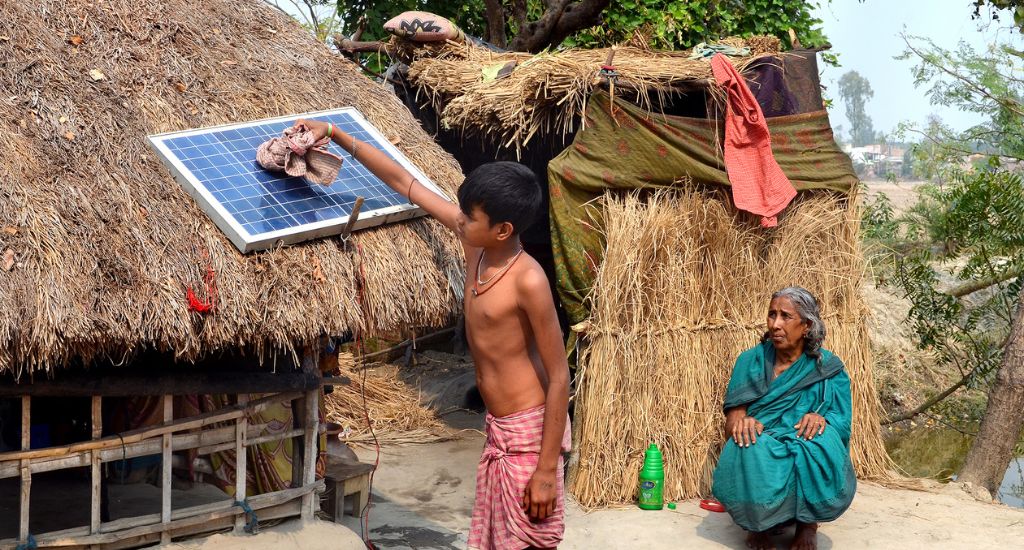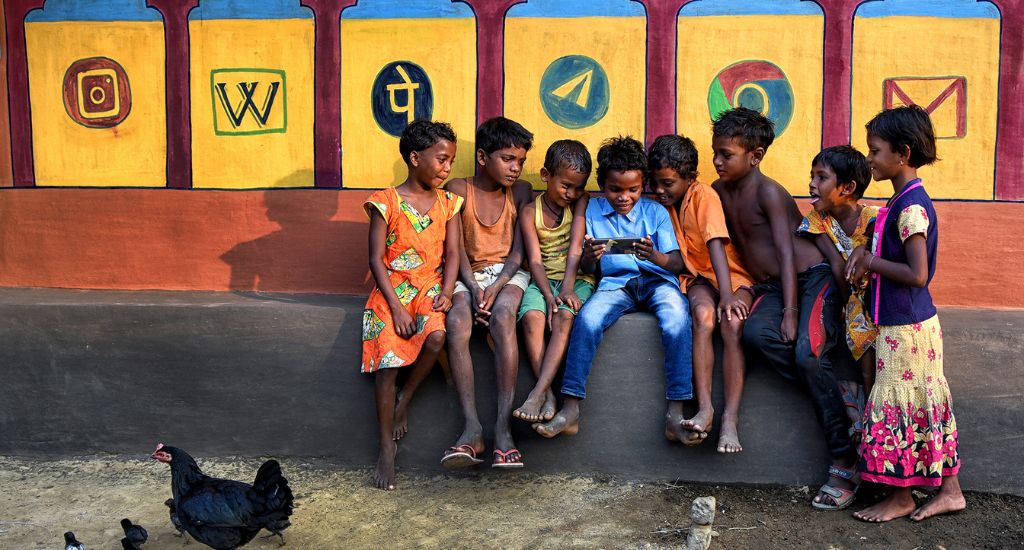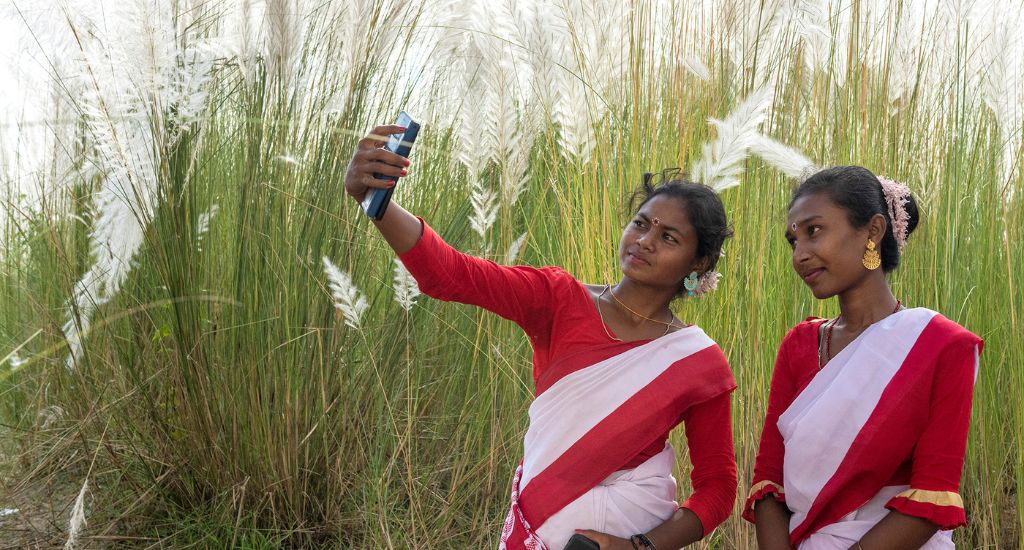
Is rural India on the brink of a renaissance?
Will Indian villages be part of the country's galloping growth? A leading development conference holds over 100 conversations to find out.

Will Indian villages be part of the country's galloping growth? A leading development conference holds over 100 conversations to find out.
India is an overwhelmingly rural society with a high level of poverty and inequality.
Yet rural India is a $1 trillion economy – well over many more “urbane,” developed countries like Switzerland and Denmark. And the country is bursting with young talent, tech leadership, national confidence and growing development spend, besides its adequate food stock and enviable welfare-delivery architecture.
All of which beg the question – is India on the precipice of a “rural renaissance?”
A leading development conference hosted by Village Square’s parent organisation, Transform Rural India (TRI), aims to find out just that with its India Rural Colloquy (IRC). The Delhi chapter involves eight days of conversations that aim to find solutions and actions that bring real change.
The colloquy places a premium on hearing voices from the ground. This year it went one step further, kicking off with three regional colloquies first – in Ranchi, Bhopal and Raipur – which brought together people from state to district level, from villagers to leaders and from government to business.
“We believe rural India’s time has come – time for inclusive growth, for a democratic, bottom-up Bharat – a rural renaissance. But are there still hurdles to be jumped?,” said Neeraj Ahuja, Associate Director of TRI and part of the colloquy backstage team. “That’s why we’re bringing together over a 100 of India’s most passionate thought leaders in the development space, and beyond, to help us answer these questions.”
The Delhi chapter will include 17 sessions covering an array of topics. It will commence at 10 am on 1 August at Juniper Hall, India Habitat Centre, with conversations about the emerging trends in society and the economy, as well as a discussion from some of India’s innovative, young minds who bring new businesses and investments to villages.

A major State of Health in Rural India report will be launched on 1 August by the Data Intelligence Unit (a collaboration between TRI and data science specialists Sambodhi). Similarly, a State of Education in Rural India report will also be launched. Both are pan-India surveys expected to shed light on two areas crucial to prosperity in rural India.
Another session will delve into using design thinking to more holistically address problems in marginalised communities with some of the leading thinkers in the field coming from abroad to participate.
“As rural India steps up in this booming economy, it becomes critical that rural dwellers are able to tap into this know-how and help contribute to a more sustainable and equitable futures – not only for themselves but India as a country,” said André Nogueira, founder and CEO of LEAP and Harvard Deputy Director of D-Lab at Harvard T.H. Chan School of Public Health.
Discussions will also be held on governance and gender, and a whole day is dedicated to tech in the rural landscape that will be co-hosted by Dhwani Rural Information Systems at IIT-Delhi on 4 August.
Rural life does not only centre around the needs and challenges of its people. There is a lot to celebrate too.

That is why a huge and unique part of this year’s India Rural Colloquy will be held in collaboration with Village Square for its ‘Dilli Haat Chapter’.
Songs, dance and cultural conversations will light up the evening from 5pm onwards on 5 August. First the renowned filmmaker, artist, fashion designer and social worker Muzaffar Ali will talk about how the Hindi film industry and fashion cover rural India. He will also launch the first Village Square Media Fellows coffee table book, which covers their work showcasing untold stories from villages.
A group of young dancers will then perform the Karagattam folk dance of Tamil Nadu, followed by two musical acts, beginning with the transformative and soulful band of former prisoners from Udaipur, called Naya Savera. The energetic Ladakhi folk-rock band, Dashugs, will then pump up the crowd.
Also Read | First musical band of high-altitude Ladakh riding high
“There’s a big trend globally of young people yearning to discover their roots. Their concern of climate change is extending beyond what the future holds to what their identity and backgrounds are. We want to hook youngsters who are on this journey of self-discovery to rural India,” Sanjana Kaushik, Village Square Manager, said.
This is a free show open to the public.
There will also be an InstaLive on Sunday at noon – Bharat Ek Kahani – Culture and Cuisines from Rural India – involving a conversation over a millets-inspired brunch with leaders in the food industry.
And because development in rural India can’t happen without direct inputs from the local communities, voices from the frontline of development – from village heads to organisation volunteers – will share a stage with the Secretary of the Ministry of Panchayati Raj at India Habitat Centre on 8 August, the last day of the colloquy.
The India Rural Colloquy, which first ran 1-8 August in 2021 and also then the same week in 2022, is also a tribute to the Quit India Movement week of 1942. Today, those in development want poverty to quit India.

“The ideals of August resonate even today as we seek to free India of wants, as we pour our energies and national will to build India at par with developed nations – not just in economic terms but also in human development,” said TRI co-founder Anish Kumar.
This monumental week echoes the development world’s quest in gaining dignity for all and igniting conversations that will bring actionable ideas to ensure everyone is free to access equal opportunities.
What about you?
Do you want to be part of the change? Then sign up for the conversations and be a part of India’s inclusive progress. Register here.
The lead image at the top shows in a quaint village, a diligent young boy takes on the responsibility of maintaining the efficiency of solar panels through meticulous cleaning (Photo by Puranjit Gangopadhyay)
Lyndee Prickitt is the Director of Village Square.